By Alyx Perry
Making a living as a farmer is tough anywhere, but it’s particularly true in the North Carolina mountains. Western North Carolina lost 18 percent of its farms — more than 2,800 — in the 15 years between 1997 and 2012. And the majority of existing WNC farmers today are nearing retirement age — many of them without heirs who plan to keep the farm going.
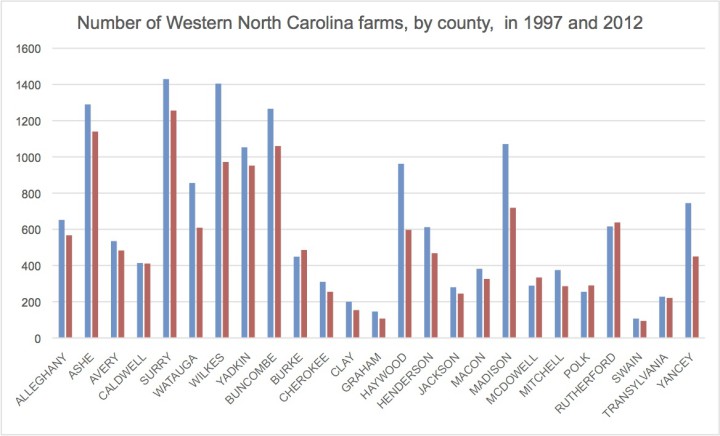
Several groups are helping new, veteran and would-be farmers plan for economic sustainability, according to Molly Nicholie, program director for the Local Food Program at Appalachian Sustainable Agriculture Project. “It is very difficult to make farming your primary source of income,” Nicholie said.
To better understand the challenges facing new farmers, the Organic Growers School recently assessed the obstacles faced by current and aspiring farmers, particularly when trying to start a farm in the region. “We needed to understand the barriers to successful farming in Western North Carolina and, more importantly, to discover the kinds of services, training and support our farmers need in order to succeed,” said Nicole DelCogliano, OGS’ farmer programs associate.
Lack of access to land and capital ranked as the two biggest barriers to farm startups, according to OGS’ recently released report, “Barriers to Farming in Western North Carolina,” which summarizes the findings of a recent survey by the organization.
Seventy-eight percent of those responding to the survey termed access to land a significant or very significant barrier. When asked what services would be most helpful to new farm startups, 47 percent responded that they needed assistance finding and financing land.
Finding land is particularly problematic around Asheville. “The challenge is especially difficult for farmers that depend on being near Western North Carolina’s economic growth centers — areas where land values remain high and continue to increase,” the report says.
“Land in the region is priced at development value, and it can be difficult to get financing for land that doesn’t have a home on it,” said Cameron Farlow, farmer programs coordinator with Organic Growers School.
The “Barriers” report confirms the findings of a 2010 statewide study by North Carolina’s Center for Environmental Farming Systems, which identified access to capital and land as the largest barriers facing new farmers in the state.
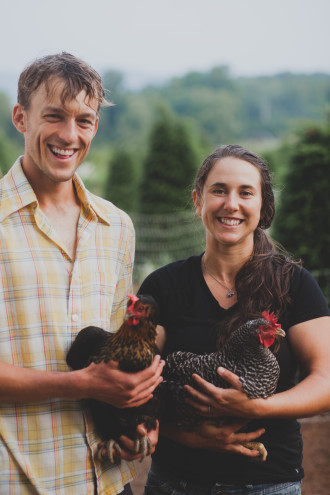
More than 70 percent of North Carolina farmland is owned by farmers who inherited their land, according to the USDA Census of Agriculture. Marie Williamson and William Lyons, owners of Bluebird Farm in Morganton, got started farming on family-owned land. “The family land was invaluable when we were getting started,” Lyons said. When Williamson and Lyons were ready to expand their farm, they were able to lease additional acreage from a friend nearby.
Would-be farmers can get help finding land to lease from WNC Farm Link, a partnership of Organic Growers School, Southern Appalachian Highlands Conservancy and others. WNC Farm Link, now in its third year, been approached by at least 100 people seeking farmland in the region.
Leasing rather than buying gives farmers a chance to gain experience in farming while saving up for a purchase, according to Suzanna Denison, WNC Farm Link land access coordinator,
Lyons agrees. “I would recommend leasing rather than buying for farmers starting out. It’s a much lower risk than buying.”
For aspiring farmers hoping to persuade banks to lend them capital, a good business plan is fundamental, according to Maggie Hamm at Carolina Farm Credit. “One of our strong focuses is to work with young and beginning farmers. When connecting them with financing, we look for a strong business plan, and we provide them the support for developing a plan,” Hamm said.
It’s not only the lenders who are saying the farmers need more financial planning. So are the farmers. Eighty-seven percent of the survey respondents expressed at least some need for training in farm planning, and 63 percent said that financial planning skills are a significant or very significant need. With regulations on farms intensifying, 68 percent are seeking better understanding of legal regulations.
“If you don’t want to own a small business, don’t try and make a living as a farmer,” Lyons said.
Access to markets was the third-ranked barrier to farming, according to the survey, after access to land and capital. Over half the survey’s respondents said access to markets posed a significant barrier for them.
“It’s especially difficult to find specialty markets where you can get the price you need for products like organically raised meats. We want to make good food a bigger part of the food system, but it’s hard to be profitable,” Lyons said.
Sixty-two percent of the survey respondents said training in marketing is a significant need. Some believe the market in the Asheville region is saturated, with so many tailgate markets and restaurants touting locally sourced food.
“Asheville tailgate markets are hard to get into, so we sell at markets in the Morganton and Charlotte areas, where there are fewer small farms competing for the ‘local’ food market,” Lyons said.
Nicholie says the goal is to connect each farmer with the right buyers. “We work closely with both farmers and buyers, and believe there is enough demand in our region for new farmers to enter the market.” The challenge, Nicholie says, is to provide farmers with the training and technical support to develop good marketing plans.
Farlow sums it up this way: “Many beginning farmers don’t realize they need to be businesspeople, and many farmers don’t yet have that skill set. Our goal is to try and help people coming into farming have realistic expectations and plan creatively for their farm business and marketing before they get started.”
The results of OGS’ study is being used to help the group develop its new Farm Beginnings course, which will launch next month and provide aspiring farmers with training in sustainable production and farm-business management. The course will include 11 sessions focused on topics such as business planning and record-keeping.
So this fall and winter, many aspiring farmers in WNC will be heading “back to school” — not to become farmers, but to become smart business managers.
For more information about the Barriers to Farming in Western North Carolina report or OGS’ Farm Beginnings course, visit www.organicgrowersschool.org.



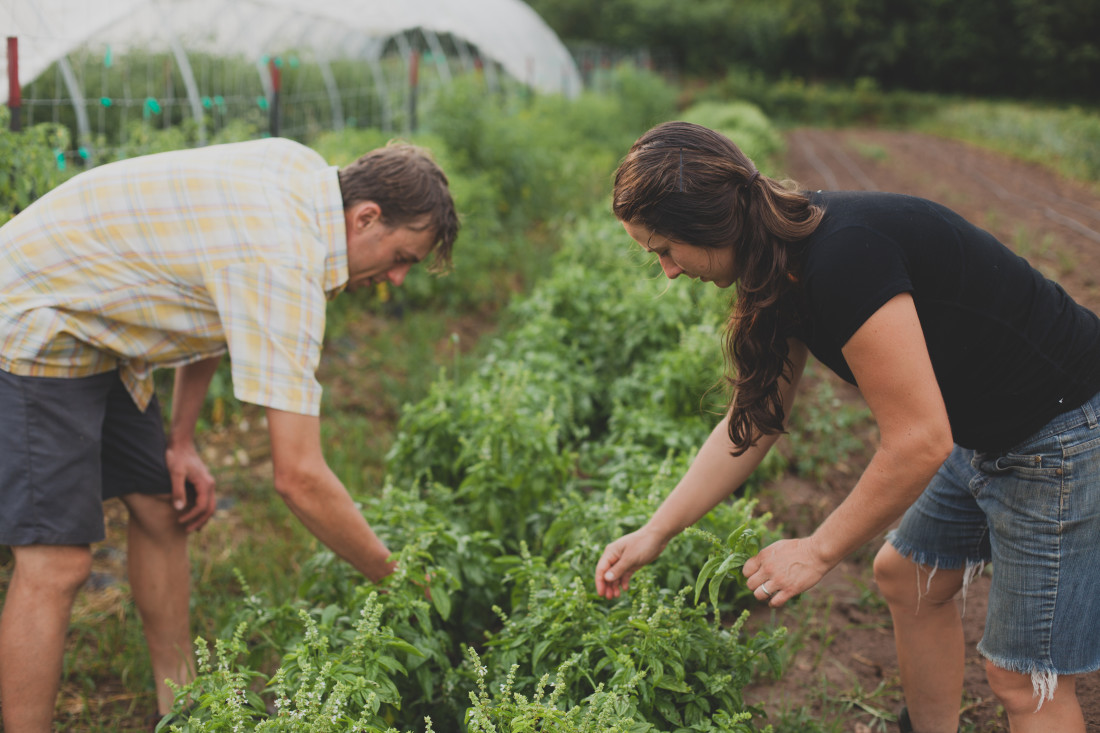
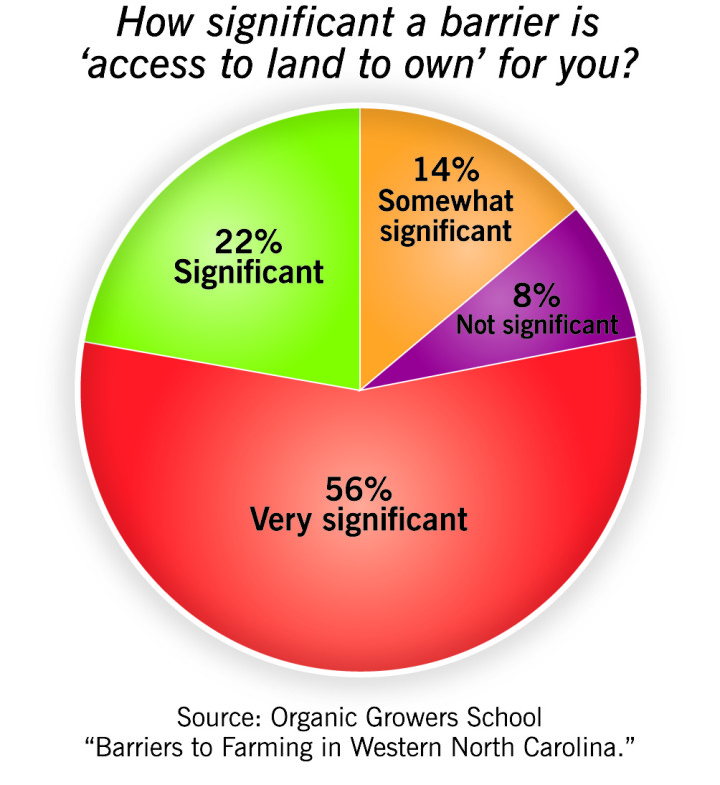
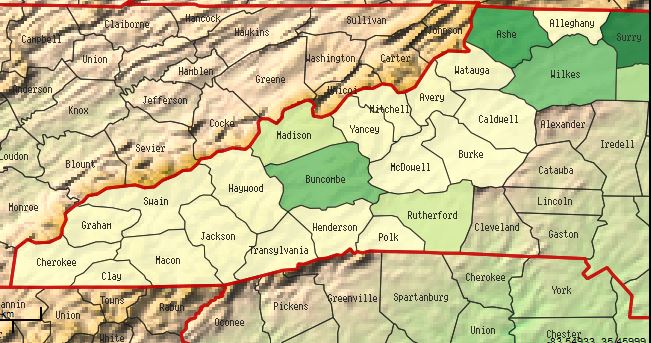
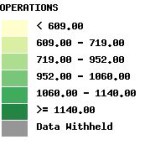
Unpaid migrants ( idealistic white kids ), and migrants the “farmer” can’t talk to…..are the mark of a abusive, businessman approach to farming.
To read the full report or a summary go to: http://organicgrowersschool.org/barriers-to-farming-in-wnc.